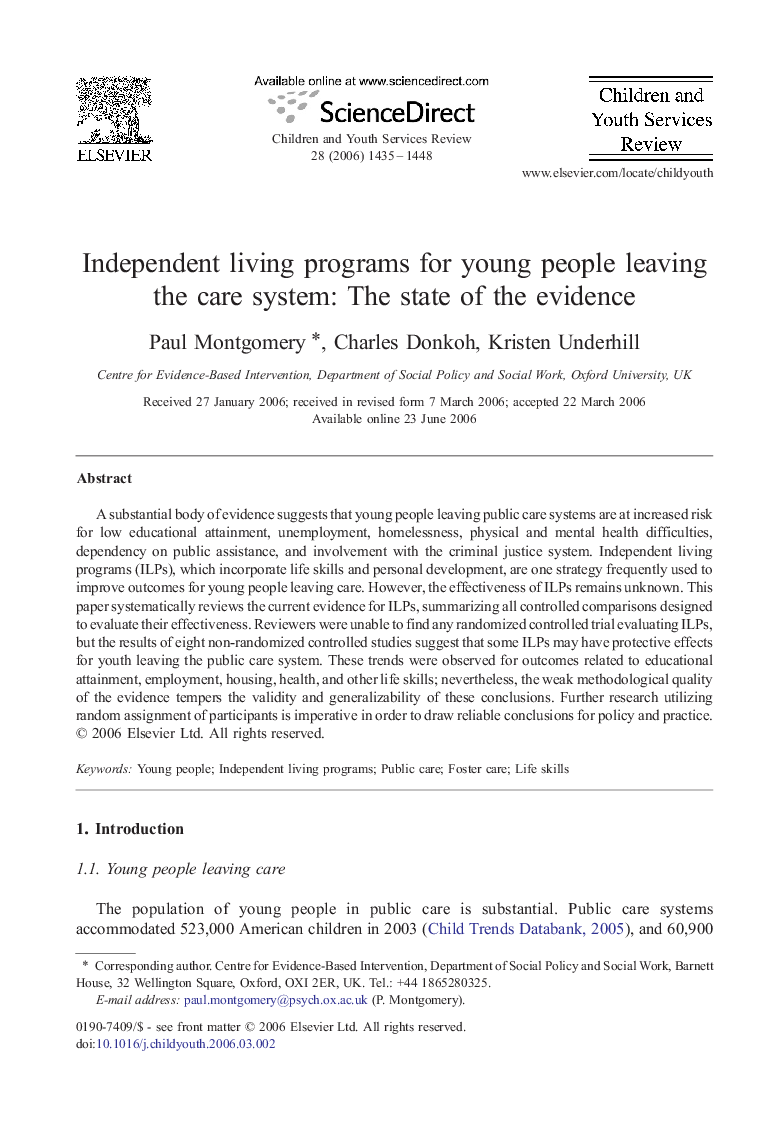| Article ID | Journal | Published Year | Pages | File Type |
|---|---|---|---|---|
| 347239 | Children and Youth Services Review | 2006 | 14 Pages |
A substantial body of evidence suggests that young people leaving public care systems are at increased risk for low educational attainment, unemployment, homelessness, physical and mental health difficulties, dependency on public assistance, and involvement with the criminal justice system. Independent living programs (ILPs), which incorporate life skills and personal development, are one strategy frequently used to improve outcomes for young people leaving care. However, the effectiveness of ILPs remains unknown. This paper systematically reviews the current evidence for ILPs, summarizing all controlled comparisons designed to evaluate their effectiveness. Reviewers were unable to find any randomized controlled trial evaluating ILPs, but the results of eight non-randomized controlled studies suggest that some ILPs may have protective effects for youth leaving the public care system. These trends were observed for outcomes related to educational attainment, employment, housing, health, and other life skills; nevertheless, the weak methodological quality of the evidence tempers the validity and generalizability of these conclusions. Further research utilizing random assignment of participants is imperative in order to draw reliable conclusions for policy and practice.
